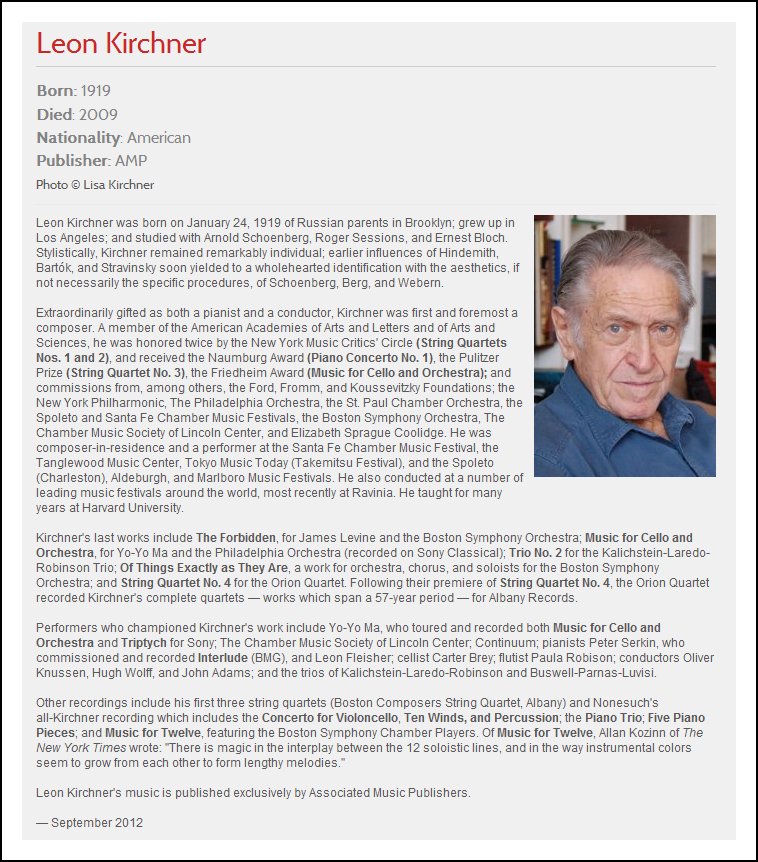

| The original commission for the Piano Concerto came from Oscar Levant. Despite paying at least $200 for the work, Levant found out that Schoenberg was demanding $1500. Levant stated he could not pay that fee, and although the two continued to exchange telegrams, in October of 1942 Schoenberg rejected Levant's final offer of $500. Levant ended all negotiations stating, "I hereby withdraw utterly and irrevocably from any further negotiations... [and] wish no longer to be involved in [the concerto's] future disposition." Fortunately another American student stepped in to commission the concerto. Henry Clay Shriver studied counterpoint with Schoenberg at UCLA in the late 1930s, and then studied with Gerald Strang, a former teaching assistant of Schoenberg, in Long Beach in the 1940s. Shriver opted for a career in the law instead of music, which might explain his access to funds for the commission. Strang suggested the idea of the commission to Shriver, who then wrote Schoenberg a check for $1000. He had already commissioned a string quartet from Schoenberg, who never finished the work, and had also kept in contact with the composer after his UCLA studies, being present at Schoenberg's home with other colleagues and students for the radio broadcast of the Chamber Symphony No 1 in December 1940. Gratefully, Schoenberg completed the Concerto in December 1942 and dedicated it to his new patron, who held an original version of the work until his death in 1994. |
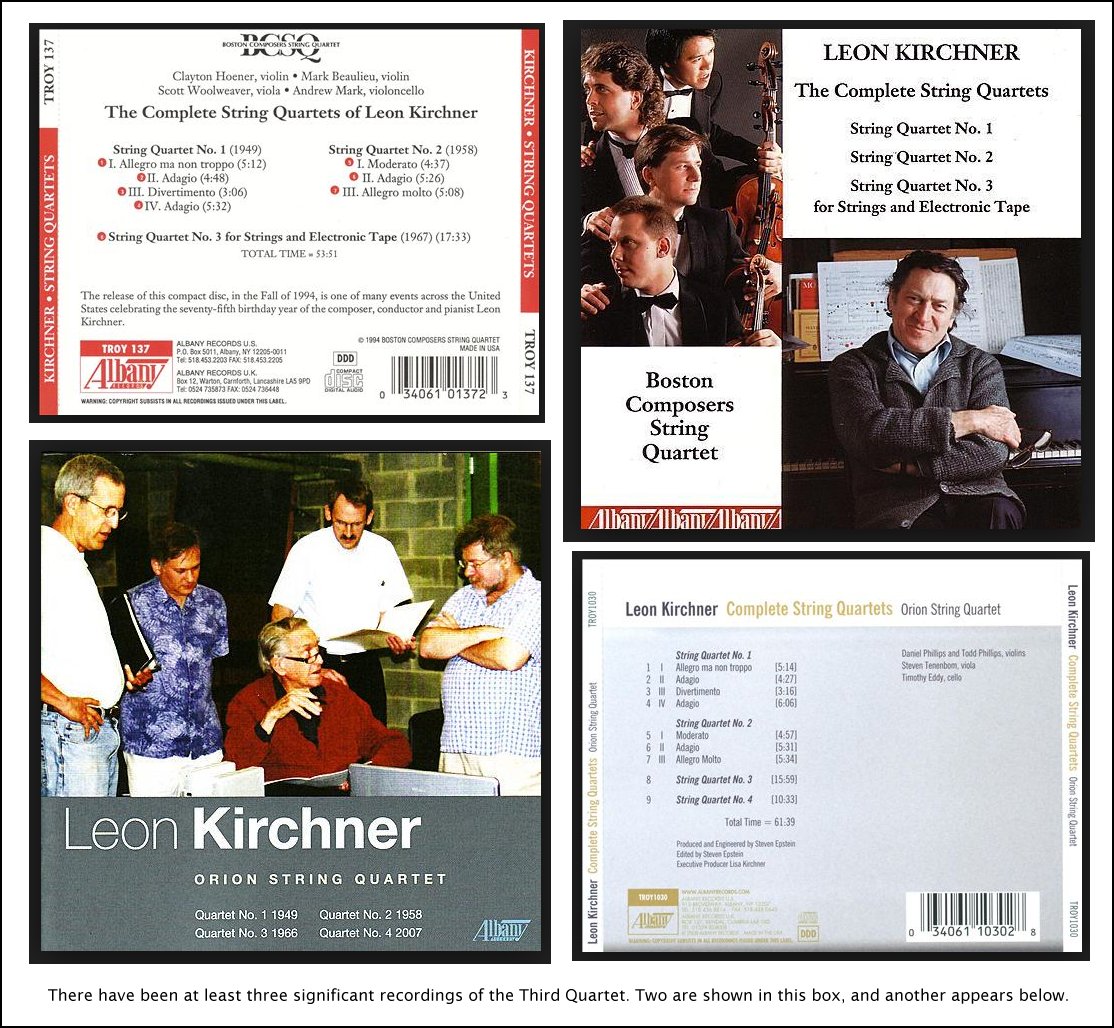
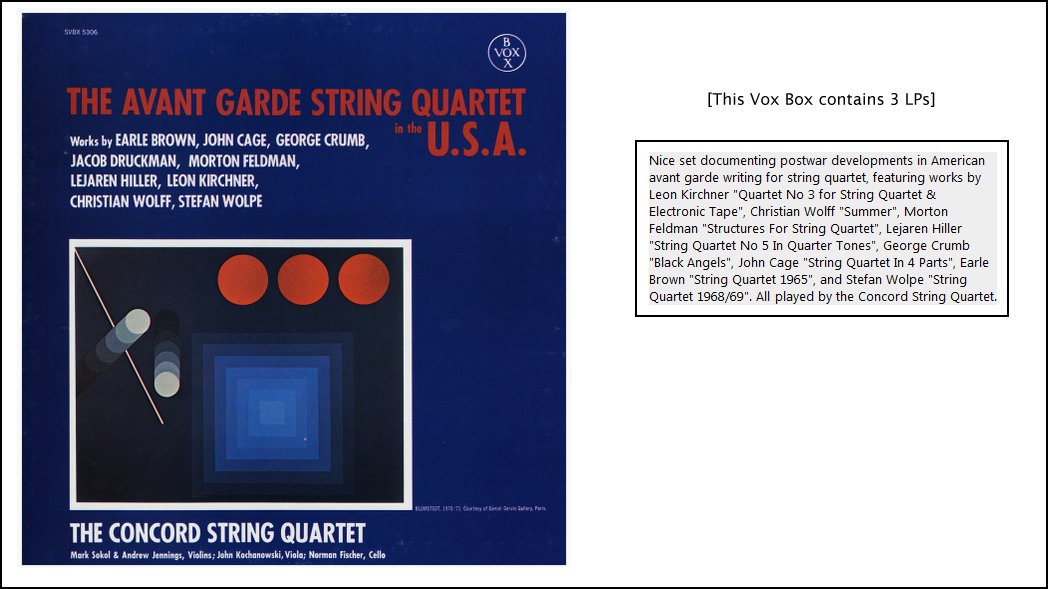
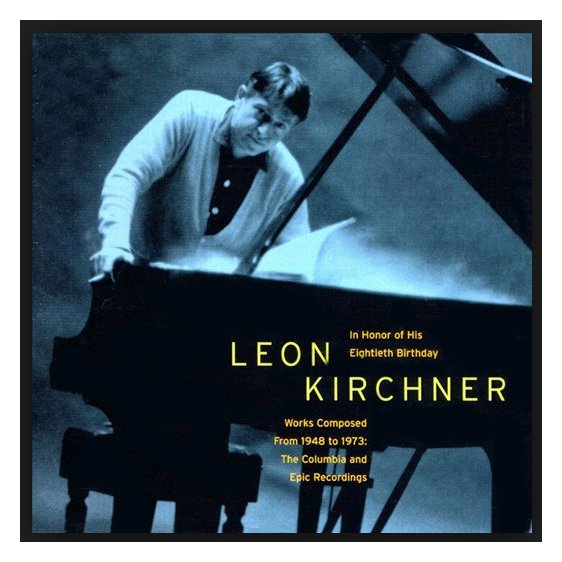 * * *
* *
* * *
* *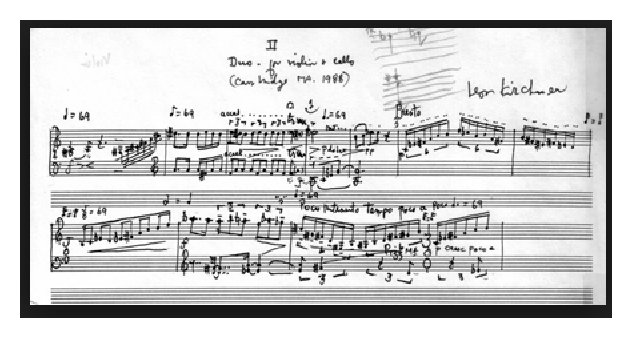 LK: Oh, there are many, many times when you’re
never in control of that pencil. [Laughs] But what happens there
is described most characteristically, or more clearly, by writers when they
tell you they have invented a character, and then suddenly the character invents
the situation. They are not in control of that character in relation
to all the other characters, and also in relation to the experience in which
the character has done all kinds of things as you yourself as a writer have
not planned. In the same way, ideas, motifs, little variables here
and there, subconsciously and unconsciously, in whatever way, do things that
you really have not planned, that you have not overseen. It makes you
realize that there are other situations there that you have not controlled
in your imagination. You would like to have complete control and say
you understood this work from beginning to end. In fact, I can tell
you an amusing story about that. Hindemith, in his Norton Lectures, stated that a composer
who did not see the entire landscape of a work in a single lightning
stroke — which is what you’re implying here — should
not be composers. In other words, they don’t control all the forces,
therefore they don’t have the ability, they don’t have the powerful imagination
to conceive of a structural idea from the first to the last moment.
There was a time when I was on a traveling fellowship, and I was supposed
to go to Paris but the War already was on. This was 1942, and one of
my teachers, a musicology teacher named Manfred Bukofzer (1910-1955), who
was a brilliant musicologist actually, wanted me very much to study with Hindemith.
So he gave me a letter to him, and asked me to contact him, which I did.
But at that time, I was on the verge of being drafted anyway, and I had joined
the Signal Corps in New York so that I could continue my schooling.
I went to school eight hours every day, and thereby managed to remain in
New York for at least a period of nine months. I had a two-year fellowship,
but it lasted about eight or nine months where I could study with someone
— possibly with Hindemith, possibly with Roger Sessions, or somebody
in the East, but I did go up to visit with Hindemith. He looked at
my works, and very quickly he said, “We’re not interested
in talent here! We’re interested in work, and you need it. You
will take this course and you will take that course, and you will live here
with me. You may not commute from New York. You have to come
up here to live in New Haven.” I couldn’t.
I didn’t even want to explain to him that I was in the Signal Corps, and
that was something impossible. He had had, from his point of view,
bad experiences of others that were commuting from New York. He had
had another composer... I always used to think it was probably Lukas Foss or somebody like
that! Anyway, he just didn’t like that idea. He wanted to have
full control. He was almost dictatorial in that way. So I was
very disappointed in it because I knew I couldn’t do that, and I told him
I was really sorry, that I wanted so much to study with him, but it wasn’t
possible. So I packed up and went to the door, and as I was going
I said, “Mr. Hindemith, may I ask you a personal question?”
(This directly refers to your question.) He said, “It
depends. What question do you want to ask me?”
I said, “You wrote in your Norton Lectures at Harvard that a composer
who could not see the entire landscape of work in a single lightning stroke
should not really be a composer, because he didn’t have whatever it took
to be that composer.” He said yes, he had said
something like that. “What of it?”
I said, “The question that I wanted to ask you is,
would you accept a composer who could see the entire vista in two lightning
strokes!” At first he seemed to be angry, and
then there was a sort of twinkle in his eye, and he said, “Oh,
I suppose so!” Then I got finally to the door,
and I turned around as I was about to leave I said, “Mr.
Hindemith, can I ask you one more question?” and he
said, “Well, go ahead.”
I said, “Would you accept a composer who could see
the entire vista in three lightning strokes?”
He broke down and began to laugh because he realized just as well as I did
or just as well as anybody else what I was getting at. What I’m trying
to describe to you or explain to you is that one doesn’t always control, in
the ordinary sense, every single move that one makes in the process of getting
into the space of a composition. Many things take place, and sometimes
unconsciously one does things because one has a wonderful repertory of equipment
that we aren’t really aware of from day to day that makes choices for us
by receiving the signals and using them better than our conscious brain power
can do. That doesn’t mean the piece is uncontrolled, or that it is
just a series of propositions, or anything of the kind, but that this is
a very, very complex thing, and that the pencil, as you stated, sometimes
seems to do things that you’re not really quite aware of. Many times
you’re not aware of it for years and years and years, and then you look back
— as I’ve had the opportunity to do, or as anybody who has written
a number of works and had to play these works (since I was always a performer)
— you suddenly say, “Oh my God, how did I
ever do this? Hey, this is brilliant! Oh, I see the relationship
now between this and that!” It was something that
I hadn’t seen at the time of composition, and that is the process of performances
as well. That’s the power of art. It’s a constant kaleidoscoping
of ideas that has as its background the change in time and the change in
others’ compositions that are being done. That
sometimes why, when you hear Webern or Schoenberg or Lutosławski or Stravinsky,
and then go back to doing some Mozart piece or some Haydn piece, there’s
a freshness in the way you approach it because of all this other stuff banging
at you. That’s the wonderful power of art, and it makes possible new
interpretations, and that’s one of the things that is so immensely limiting
in electronic music — it always remains the same.
Once you do it, that’s it, and that’s not really what art is really about.
LK: Oh, there are many, many times when you’re
never in control of that pencil. [Laughs] But what happens there
is described most characteristically, or more clearly, by writers when they
tell you they have invented a character, and then suddenly the character invents
the situation. They are not in control of that character in relation
to all the other characters, and also in relation to the experience in which
the character has done all kinds of things as you yourself as a writer have
not planned. In the same way, ideas, motifs, little variables here
and there, subconsciously and unconsciously, in whatever way, do things that
you really have not planned, that you have not overseen. It makes you
realize that there are other situations there that you have not controlled
in your imagination. You would like to have complete control and say
you understood this work from beginning to end. In fact, I can tell
you an amusing story about that. Hindemith, in his Norton Lectures, stated that a composer
who did not see the entire landscape of a work in a single lightning
stroke — which is what you’re implying here — should
not be composers. In other words, they don’t control all the forces,
therefore they don’t have the ability, they don’t have the powerful imagination
to conceive of a structural idea from the first to the last moment.
There was a time when I was on a traveling fellowship, and I was supposed
to go to Paris but the War already was on. This was 1942, and one of
my teachers, a musicology teacher named Manfred Bukofzer (1910-1955), who
was a brilliant musicologist actually, wanted me very much to study with Hindemith.
So he gave me a letter to him, and asked me to contact him, which I did.
But at that time, I was on the verge of being drafted anyway, and I had joined
the Signal Corps in New York so that I could continue my schooling.
I went to school eight hours every day, and thereby managed to remain in
New York for at least a period of nine months. I had a two-year fellowship,
but it lasted about eight or nine months where I could study with someone
— possibly with Hindemith, possibly with Roger Sessions, or somebody
in the East, but I did go up to visit with Hindemith. He looked at
my works, and very quickly he said, “We’re not interested
in talent here! We’re interested in work, and you need it. You
will take this course and you will take that course, and you will live here
with me. You may not commute from New York. You have to come
up here to live in New Haven.” I couldn’t.
I didn’t even want to explain to him that I was in the Signal Corps, and
that was something impossible. He had had, from his point of view,
bad experiences of others that were commuting from New York. He had
had another composer... I always used to think it was probably Lukas Foss or somebody like
that! Anyway, he just didn’t like that idea. He wanted to have
full control. He was almost dictatorial in that way. So I was
very disappointed in it because I knew I couldn’t do that, and I told him
I was really sorry, that I wanted so much to study with him, but it wasn’t
possible. So I packed up and went to the door, and as I was going
I said, “Mr. Hindemith, may I ask you a personal question?”
(This directly refers to your question.) He said, “It
depends. What question do you want to ask me?”
I said, “You wrote in your Norton Lectures at Harvard that a composer
who could not see the entire landscape of work in a single lightning stroke
should not really be a composer, because he didn’t have whatever it took
to be that composer.” He said yes, he had said
something like that. “What of it?”
I said, “The question that I wanted to ask you is,
would you accept a composer who could see the entire vista in two lightning
strokes!” At first he seemed to be angry, and
then there was a sort of twinkle in his eye, and he said, “Oh,
I suppose so!” Then I got finally to the door,
and I turned around as I was about to leave I said, “Mr.
Hindemith, can I ask you one more question?” and he
said, “Well, go ahead.”
I said, “Would you accept a composer who could see
the entire vista in three lightning strokes?”
He broke down and began to laugh because he realized just as well as I did
or just as well as anybody else what I was getting at. What I’m trying
to describe to you or explain to you is that one doesn’t always control, in
the ordinary sense, every single move that one makes in the process of getting
into the space of a composition. Many things take place, and sometimes
unconsciously one does things because one has a wonderful repertory of equipment
that we aren’t really aware of from day to day that makes choices for us
by receiving the signals and using them better than our conscious brain power
can do. That doesn’t mean the piece is uncontrolled, or that it is
just a series of propositions, or anything of the kind, but that this is
a very, very complex thing, and that the pencil, as you stated, sometimes
seems to do things that you’re not really quite aware of. Many times
you’re not aware of it for years and years and years, and then you look back
— as I’ve had the opportunity to do, or as anybody who has written
a number of works and had to play these works (since I was always a performer)
— you suddenly say, “Oh my God, how did I
ever do this? Hey, this is brilliant! Oh, I see the relationship
now between this and that!” It was something that
I hadn’t seen at the time of composition, and that is the process of performances
as well. That’s the power of art. It’s a constant kaleidoscoping
of ideas that has as its background the change in time and the change in
others’ compositions that are being done. That
sometimes why, when you hear Webern or Schoenberg or Lutosławski or Stravinsky,
and then go back to doing some Mozart piece or some Haydn piece, there’s
a freshness in the way you approach it because of all this other stuff banging
at you. That’s the wonderful power of art, and it makes possible new
interpretations, and that’s one of the things that is so immensely limiting
in electronic music — it always remains the same.
Once you do it, that’s it, and that’s not really what art is really about.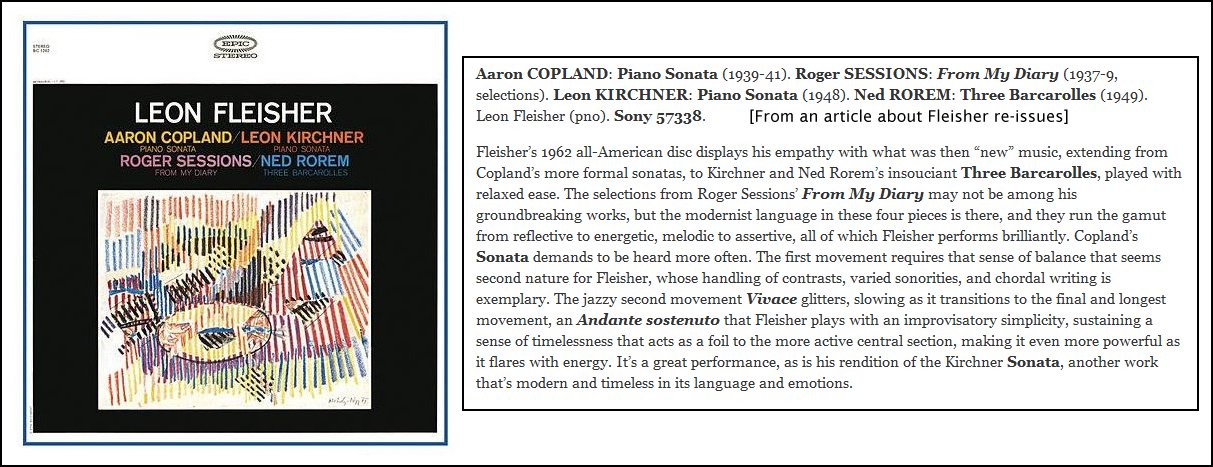
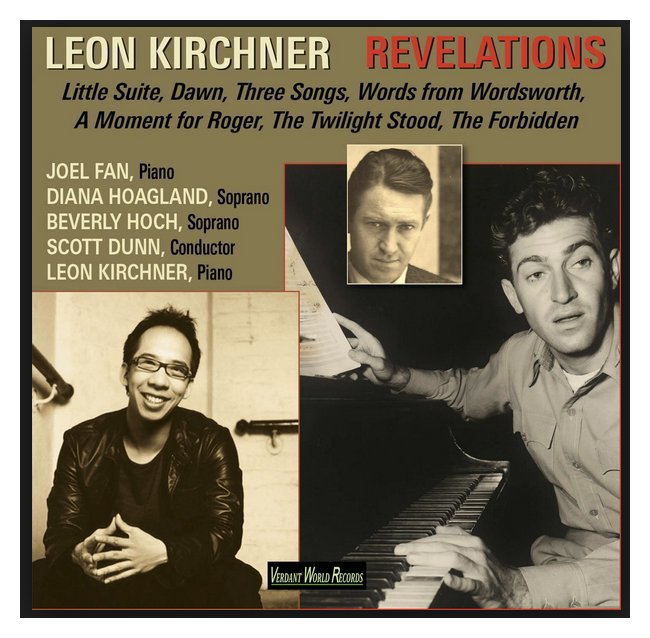 LK:
One can teach a student what technique is, and how one can obtain a sort of
quasi-verifiable outcome. I hate to use the word ‘verifiable’, but one
can make a lot of determination based on the technical structure of a work.
That doesn’t mean that even if it has a fine outline from beginning to end,
it will be good. Take a sonata, for instance. The sonata structure,
which still is being used to an extent, is like a life-form. It has
a primary idea, and the means to achieve that idea by the use of certain kinds
of harmony — a stable harmony, an exposition of harmony
(exposition meaning the exposition of a work as oppose to the development
or the recapitulation). In that exposition, certain kinds of harmonies
are used as opposed to a more roving harmony, or faster-moving harmony, say
in the development section. I’m speaking of an idealized form, or thinking
in terms of Beethoven sonatas, or Haydn or Schubert or any of the Viennese
classic forms. Then there’s the idea of a recapitulatory harmony
— what happens when a piece comes to an end. There is also
the treatment of motivic forms, of themes where there’s a certain way of expressing
an opening thematic material called a primary, or a series of themes in a
primary group. There’s also the way that primary group transits to
a secondary group, to an opposition either in harmony or in motivic material.
There are ways to understand that and to learn that by studying hundreds
of sonatas of Beethoven and Haydn and Schubert, or even looking at the works
of Schoenberg, Stravinsky or Bartók. They’re all masters at
that command. They’re tremendous masters of that kind of command.
That is what you can teach students.
LK:
One can teach a student what technique is, and how one can obtain a sort of
quasi-verifiable outcome. I hate to use the word ‘verifiable’, but one
can make a lot of determination based on the technical structure of a work.
That doesn’t mean that even if it has a fine outline from beginning to end,
it will be good. Take a sonata, for instance. The sonata structure,
which still is being used to an extent, is like a life-form. It has
a primary idea, and the means to achieve that idea by the use of certain kinds
of harmony — a stable harmony, an exposition of harmony
(exposition meaning the exposition of a work as oppose to the development
or the recapitulation). In that exposition, certain kinds of harmonies
are used as opposed to a more roving harmony, or faster-moving harmony, say
in the development section. I’m speaking of an idealized form, or thinking
in terms of Beethoven sonatas, or Haydn or Schubert or any of the Viennese
classic forms. Then there’s the idea of a recapitulatory harmony
— what happens when a piece comes to an end. There is also
the treatment of motivic forms, of themes where there’s a certain way of expressing
an opening thematic material called a primary, or a series of themes in a
primary group. There’s also the way that primary group transits to
a secondary group, to an opposition either in harmony or in motivic material.
There are ways to understand that and to learn that by studying hundreds
of sonatas of Beethoven and Haydn and Schubert, or even looking at the works
of Schoenberg, Stravinsky or Bartók. They’re all masters at
that command. They’re tremendous masters of that kind of command.
That is what you can teach students.© 1990 Bruce Duffie
This conversation was recorded on the telephone on December 16, 1990. Portions were broadcast on WNIB in 1994 and 1999; on WNUR in 2009 and 2014; and on Contemporary Classical Intrerenet Radio in 2009. This transcription was made in 2016, and posted on this website at that time. My thanks to British soprano Una Barry for her help in preparing this website presentation.
To see a full list (with links) of interviews which have been transcribed and posted on this website, click here.
Award - winning broadcaster Bruce Duffie was with WNIB, Classical 97 in Chicago from 1975 until its final moment as a classical station in February of 2001. His interviews have also appeared in various magazines and journals since 1980, and he now continues his broadcast series on WNUR-FM, as well as on Contemporary Classical Internet Radio.